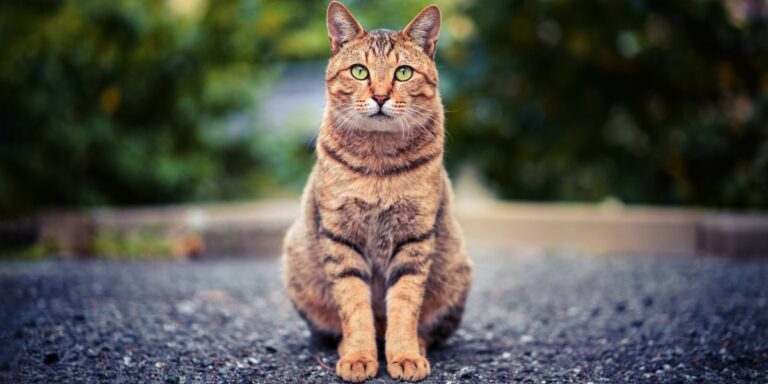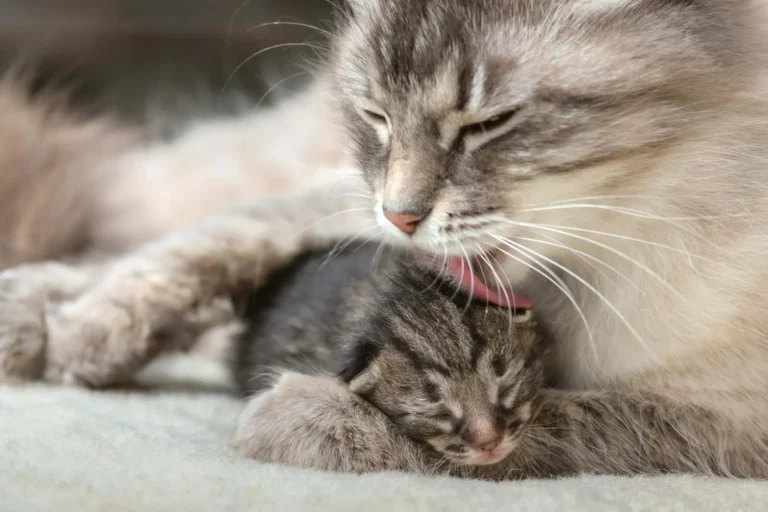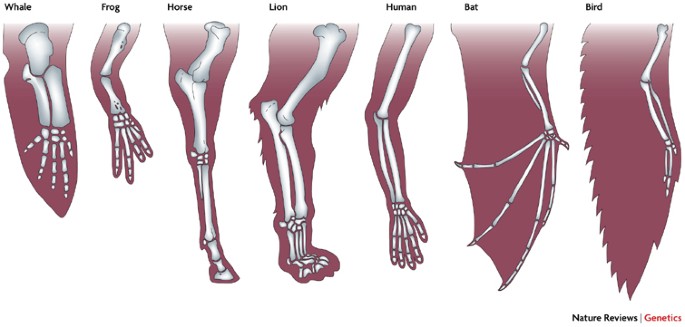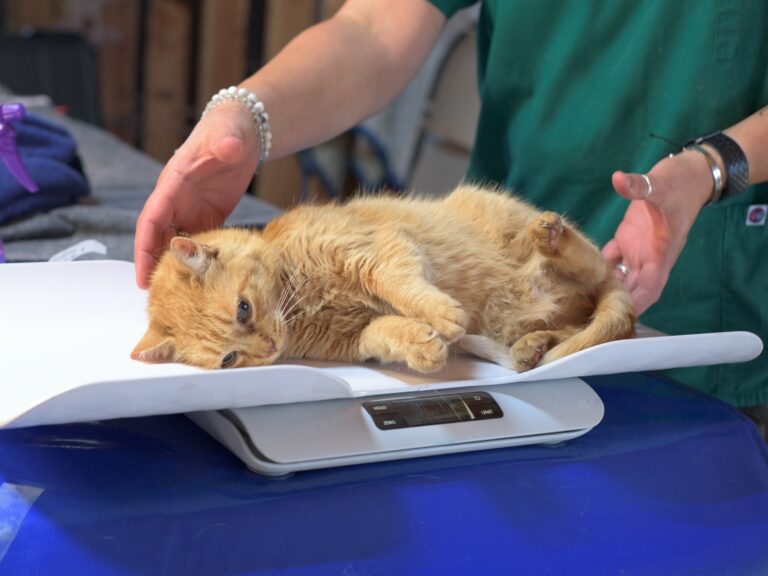Building a strong foundation for cat health
Understanding the Basics of Cat Health
Cats, beloved companions to millions of people around the world, require regular care and attention to maintain their overall health and well-being. Understanding the basics of cat health is essential for any cat owner, as it enables them to provide the best possible care for their feline friend.
One fundamental aspect of cat health is nutrition. Feeding cats a balanced and appropriate diet is crucial for their overall health. Cats are obligate carnivores, which means they require a diet rich in animal protein. High-quality commercial cat food formulated to meet their specific nutritional needs is widely available and recommended. It is important to avoid feeding cats a solely vegetarian or homemade diet, as this can lead to nutrient deficiencies and health problems. Additionally, providing fresh water at all times is essential to keep cats properly hydrated. By understanding and meeting their nutritional needs, cat owners can help ensure their pets remain healthy and thrive.
Nutritional Needs for Optimal Cat Health
Cats, like all living beings, require a well-balanced diet to maintain optimal health. A proper nutritional plan is crucial for cats, as it provides the essential nutrients needed for growth, development, and overall well-being. When it comes to feeding your feline friend, it is important to understand their specific dietary needs and make informed decisions in choosing the right food.
A cat’s diet should primarily consist of high-quality protein, as they are obligate carnivores. Protein-rich foods such as meat, poultry, and fish are essential for maintaining healthy muscles, tissues, and organs in cats. Additionally, cats require a moderate amount of fat in their diet, which helps provide them with energy and aids in the absorption of certain vitamins. However, it is equally important to choose sources of fat that are healthy and easily digestible. Avoiding fillers and excessive carbohydrates is also crucial, as cats have a limited ability to digest carbohydrates compared to other animals.
When selecting cat food, it is essential to read labels carefully and choose products that meet the nutritional requirements for cats. Look for foods that meet the standards set by recognized organizations such as the Association of American Feed Control Officials (AAFCO). These standards ensure that the food meets the necessary nutrient levels and provides a complete and balanced diet for cats. Additionally, consulting with a veterinarian can provide valuable guidance in selecting the most suitable food for your cat’s specific needs.
Providing your cat with a varied diet is also important to ensure they receive all the necessary nutrients. Incorporating a mix of wet and dry food can help meet their hydration needs while promoting dental health. It is important to note that changes in a cat’s diet should be made gradually to avoid digestive issues. Regular monitoring of your cat’s weight and overall health is crucial to ensure that they are receiving proper nutrition and to make any necessary adjustments to their diet.
Establishing a Consistent Veterinary Care Routine
Regular veterinary care is essential in maintaining your cat’s overall health and well-being. By establishing a consistent veterinary care routine, you can ensure that your furry friend receives the necessary preventive treatments, vaccinations, and check-ups to detect any potential health issues early on. A veterinary care routine typically includes regular visits to the veterinarian, which may vary depending on your cat’s age, health status, and specific needs.
During these visits, your veterinarian will perform a thorough examination to assess your cat’s physical health. They may also recommend preventive measures such as vaccinations for common feline diseases, including rabies and feline viral rhinotracheitis. Additionally, regular veterinary care may involve routine blood tests to check for any underlying health conditions and screenings for parasites such as fleas, ticks, and intestinal worms. By adhering to a consistent veterinary care routine, you can ensure that your feline companion stays healthy and receives any necessary treatments in a timely manner.
Providing a Safe and Stimulating Environment for Cats
Cats thrive when they have a safe and stimulating environment that meets their natural instincts and needs. Creating such an environment requires careful consideration of their surroundings and providing essential elements that contribute to their overall well-being.
Safety is paramount when it comes to creating a cat-friendly space. Ensure that potential hazards, such as toxic plants, small objects that can be swallowed, or open windows without screens, are eliminated. Cats are curious creatures and can easily get themselves into trouble, so it’s essential to remove any potential dangers from their reach.
In addition to safety, cats need stimulation to lead fulfilling lives. Enrich their environment with toys, scratching posts, and climbing structures that encourage them to exercise and engage in their natural behaviors. Offering different types of toys, such as interactive puzzles or feather wands, can keep them mentally stimulated and prevent boredom. Regularly rotating toys to maintain novelty can also help sustain their interest.
By ensuring a safe and stimulating environment for your feline companion, you are setting the stage for their overall health and happiness. Creating a space that allows them to explore, play, and relax will not only enhance their quality of life but also strengthen the bond between you and your feline friend.
The Importance of Regular Exercise for Cat Health
When it comes to keeping your cat healthy, regular exercise plays a vital role. Just like humans, cats need physical activity to maintain a healthy weight, promote proper digestion, and prevent the development of various health issues. Regular exercise helps to burn calories and increase muscle tone, improving your cat’s overall well-being.
One of the simplest ways to encourage exercise in cats is through playtime. Engaging in interactive play sessions with your feline friend using toys such as feathers, strings, or laser pointers can help them get moving and stimulate their natural hunting instincts. You can also provide climbing structures or scratching posts for them to explore and stretch their muscles. Remember to make play sessions enjoyable for your cat, as it will motivate them to participate regularly.
Preventive Measures for Common Cat Health Issues
Cats are no strangers to health issues, but with the right preventive measures in place, owners can ensure their furry companions lead long and healthy lives. Firstly, it is crucial to keep up with regular veterinary check-ups. These routine visits allow professionals to catch any potential health concerns early on and provide appropriate treatment. Vaccinations are also essential, as they protect cats from various infectious diseases. Regular deworming and parasite control are necessary to keep these pesky intruders at bay, ensuring that cats remain free from external and internal parasites that can compromise their overall health. Additionally, owners should maintain a clean and hygienic litter box, as litter box cleanliness plays a significant role in preventing urinary tract infections and other related issues. By being proactive in these preventive measures, owners can safeguard their feline friends from common cat health issues and improve their overall well-being.
Another preventive measure that cat owners should prioritize is dental care. Good oral hygiene not only prevents dental diseases such as gingivitis and dental decay but also helps prevent other health issues that can stem from poor dental health. Regular brushing of a cat’s teeth, providing dental treats or toys, and incorporating dental cleaning into their routine veterinary check-ups can go a long way in maintaining optimal dental health. Moreover, a balanced and nutritious diet tailored to a cat’s specific dietary needs is essential for their overall well-being. By feeding them high-quality cat food that meets their nutritional requirements, owners can prevent nutritional deficiencies and associated health problems. In addition, providing fresh and clean water at all times helps prevent dehydration and supports proper kidney function.
By implementing these preventive measures, cat owners can significantly contribute to their feline companion’s long-term health and well-being. While no approach is foolproof, taking the necessary steps to prevent common cat health issues is undoubtedly the best investment owners can make for their beloved pets.
Promoting Mental and Emotional Well-being in Cats
Cats, just like humans, have emotional and mental needs that require attention and care. Promoting their mental and emotional well-being is crucial to ensuring a happy and healthy feline companion. One key aspect of achieving this is by creating a safe and stable environment for your cat.
Providing a secure space for your cat can help reduce stress and anxiety, ultimately contributing to their overall well-being. Make sure to create designated areas that offer comfort and solitude, where your cat can retreat and relax when needed. This can include cozy beds, hiding spots, or even a quiet room where they can have some alone time. Additionally, regular feeding and playtime routines can also help establish a sense of security and predictability, providing your cat with a stable and nurturing environment.
Another important factor in promoting their mental and emotional well-being is socialization. Cats are solitary creatures by nature, but they still benefit from social interaction with their owners and other pets. Engaging in interactive play sessions, providing positive reinforcement, and spending quality time with your cat can strengthen the bond and build trust. It’s also important to introduce new experiences gradually, allowing your cat to adapt and feel comfortable in different situations.
By prioritizing their mental and emotional well-being, cat owners can help their furry companions lead fulfilling and contented lives.
Maintaining Proper Hygiene and Grooming for Cat Health
Cats are known for their cleanliness and self-grooming habits, but they still require some assistance in maintaining proper hygiene. Regular grooming sessions are essential for their overall health and well-being. Brushing your cat’s fur helps to remove dirt, loose hair, and tangles, preventing matting and reducing the risk of skin infections. Additionally, it promotes a healthy coat and minimizes the occurrence of hairballs.
In addition to brushing, it is crucial to pay attention to your cat’s dental hygiene. Just like humans, cats can suffer from dental issues such as tartar build-up, gum disease, and tooth decay. To prevent these problems, it is recommended to establish a routine for brushing your cat’s teeth. Using a pet-specific toothbrush and toothpaste, gently brush their teeth, focusing on the gum line. Regular dental care not only ensures a fresh breath, but it also prevents unnecessary pain and discomfort for your feline friend.
Why is maintaining proper hygiene and grooming important for cat health?
Maintaining proper hygiene and grooming is important for cat health because it helps prevent the buildup of dirt, bacteria, and parasites on their fur and skin. It also allows for early detection of any skin issues or abnormalities.
How often should I groom my cat?
The frequency of grooming depends on the type of cat and its coat length. Long-haired cats may require daily grooming to prevent matting, while short-haired cats can usually be groomed once or twice a week.
What are the benefits of regular brushing for cats?
Regular brushing helps to remove loose hair, prevent hairballs, stimulate blood circulation, and distribute natural oils for a healthy coat. It also provides an opportunity to check for any skin issues or abnormalities.
Can I use human shampoos for bathing my cat?
No, it is not recommended to use human shampoos for bathing cats. Cats have different pH levels and using human shampoos can disrupt the balance of their skin, leading to dryness and irritation. It is best to use cat-specific shampoos or consult with a veterinarian for recommendations.
How often should I bathe my cat?
Cats are generally good at grooming themselves and do not require frequent baths. However, if your cat gets into something dirty or develops a skin condition, a bath may be necessary. In general, bathing a cat once every 4-6 weeks is sufficient.
How can I keep my cat’s ears clean?
To clean your cat’s ears, use a cat-specific ear cleaner and cotton balls or gauze. Gently wipe the outer area of the ear, avoiding the ear canal. Do not use cotton swabs or insert anything into the ear canal, as it can cause injury.
How can I prevent dental issues in my cat?
Regular dental care is important to prevent dental issues in cats. This includes brushing your cat’s teeth with a cat-specific toothbrush and toothpaste, providing dental treats or toys, and scheduling regular dental check-ups with a veterinarian.
How can I keep my cat’s nails trimmed?
Regular nail trimming is essential to prevent overgrowth and discomfort for your cat. Use cat-specific nail clippers or a nail grinder and trim the tips of the nails, being careful not to cut into the quick. If you are unsure, seek guidance from a veterinarian or a professional groomer.
Do cats require any specific grooming for their eyes?
Cats with excessive tearing or discharge around their eyes may require gentle cleaning with a damp cloth or cotton ball. However, if you notice persistent eye issues or changes in eye appearance, it is important to consult with a veterinarian.
What should I do if my cat resists grooming?
If your cat resists grooming, it is important to be patient and introduce grooming gradually. Offer treats and positive reinforcement to create a positive association with grooming. If needed, consult with a professional groomer or a veterinarian for guidance on handling difficult grooming situations.







